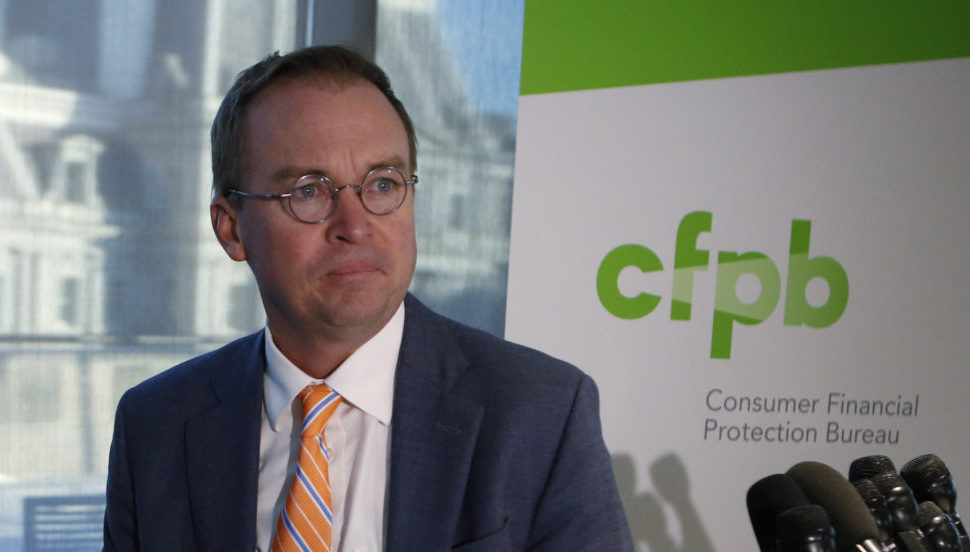The high-profile fight over the legitimate leader of the Consumer Financial Protection Bureau is set to end anticlimactically Monday (July 9) with Leandra English voluntarily dismissing her lawsuit against President Trump and the man who has tried to weaken the agency from within, Mick Mulvaney.
English challenged Trump’s ability to appoint Mulvaney as the acting director of the watchdog agency, saying the appointment violated the Dodd-Frank financial-reform law. But her lawyer, Deepak Gupta, said on Twitter that English would drop the case in light of Trump’s recent nomination of a new director, who will replace Mulvaney if confirmed by the Senate.
Statements of Leandra English and Deepak Gupta regarding litigation over the leadership of the independent Consumer Financial Protection Bureau pic.twitter.com/PoOZqKk0LR
— Deepak Gupta (@deepakguptalaw) July 6, 2018
The battle for control of the bureau began in November, when its former director, Richard Cordray, resigned. English, his deputy, believed she became the rightful head of the agency until the Senate could confirm a new full-time director. She cited a provision of Dodd-Frank that puts the deputy director in charge of the agency when the director is “unavailable.”
The White House argued that another federal statute, the Federal Vacancies Reform Act, allowed Trump to appoint his own acting director. That statute allows the president to make interim appointments of agency heads without getting Senate confirmation.
Within hours of Cordray’s resignation, Trump named Mulvaney as the head of the bureau at the same time that English was insisting she was properly in charge. English sought a court order barring Mulvaney from taking over. In January, a D.C. district judge denied her request for a preliminary injunction, and she appealed to the D.C. Circuit.
In April, a panel consisting of Judges Rogers, Griffith, and Millett heard oral argument in English v. Trump. The panel seemed skeptical that the language in Dodd-Frank regarding the director’s “unavailability” is specific enough to supersede the usual procedure in the federal vacancies statute for making presidential interim appointments.
But the judges seemed more interested in a slightly different argument: the idea that Mulvaney’s appointment may have been illegal because, while serving as acting director of the CFPB, he continued in his original role as White House budget director. That dual service arguably violates statutory provisions meant to insulate the CFPB, an independent agency, from any influence by the White House budget office.
Mulvaney has made no secret of his disdain for the CFPB. He has called it a “joke,” he has has asked Congress to dramatically restrict its powers, and in his eight months as acting director, he has aggressively rolled back many of the agency’s enforcement efforts.
The amount of time Mulvaney can serve as acting director under the vacancies statute is limited, and last month, Trump appointed Kathy Kraninger—another White House budget official—to become the next full-time director. The Senate banking committee is scheduled to hold Kraninger’s nomination hearing July 19. Democrats have raised concerns that Kraninger has little experience with financial regulation.
The nomination changed the complexion of English’s litigation because it is not disputed that a Senate-confirmed nominee would become the legitimate head of the agency.
But Mulvaney’s reign at the agency may not be over just yet. If the Senate holds up Kraninger’s nomination, or if Trump withdraws it, Mulvaney’s ability to continue serving as acting director under the vacancies act may be extended. Mulvaney himself has suggested that, if the nomination does get hung up, his tenure at the agency could last through the end of Trump’s first term.
But with English v. Trump coming to an end, it’s unlikely the D.C. Circuit will ever weigh in on whether his tenure was legal in the first place.
![]()

